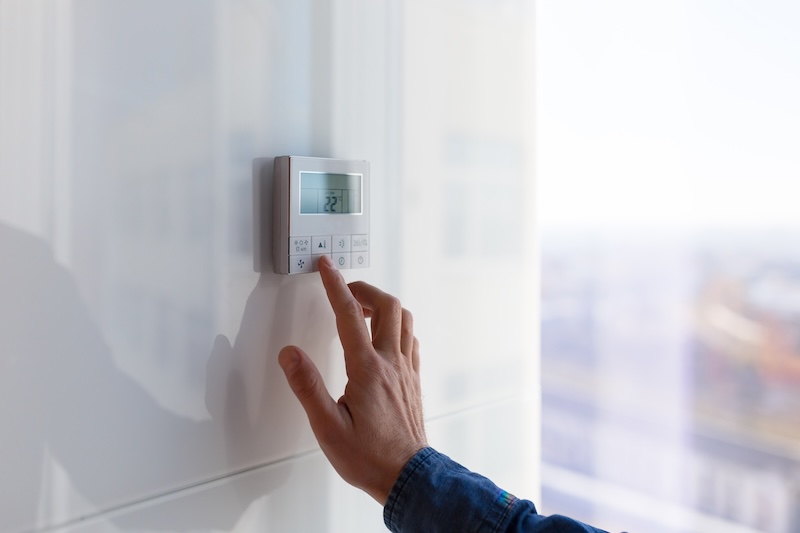Finding the right heating system for your home is an important choice that impacts comfort, budget, and home value. For military homeowners, selecting the right system can make a big difference in day-to-day living, future maintenance needs, and resale potential. Here’s an overview of the major heating options available, the pros and cons of each, and tips on how to make the best choice for your needs.
Types of Heating Systems
Forced Air Heating Systems
Forced air heating, the most common system in the United States, uses a furnace to heat air, which is then distributed throughout the home via ductwork. This system can be fueled by natural gas, propane, oil, or electricity.
Benefits:
- Quick heating response and effective distribution throughout the home.
- Compatible with air conditioning, making it a good all-in-one option.
- Works well in colder climates and can often be combined with smart thermostats for more efficient temperature control.
Drawbacks:
- Requires regular maintenance, such as changing filters and duct cleaning.
- Duct leaks or issues can reduce efficiency and require repairs.
- Potentially noisy, especially if ductwork is old or improperly installed.
Radiant Heating Systems
Radiant heating systems work by warming floors, walls, or ceilings, which then radiate heat into the room. These systems are often installed in the floor and are especially popular in bathrooms or rooms with tile flooring.
Benefits:
- Provides a comfortable, even heat without the dryness of forced air.
- Silent operation with no ductwork, making it cleaner for those with allergies.
- Excellent for cold regions, as it warms surfaces as well as the air.
Drawbacks:
- High installation costs, particularly if added to an existing home.
- Repairs can be challenging and costly, as floors or walls may need to be opened.
- Limited compatibility with air conditioning systems, which may require a separate solution.
Heat Pumps
Heat pumps are efficient options that transfer heat from outside to inside in the winter, and reverse the process in summer. There are air-source and ground-source (geothermal) options, with air-source heat pumps being the more common and affordable choice.
Benefits:
- Very energy-efficient, especially in milder climates.
- Acts as both heating and cooling system, which can save on upfront costs.
- Generally easy to maintain, with a focus on outdoor unit care.
Drawbacks:
- Air-source models are less effective in very cold climates.
- Geothermal systems require higher initial investment and significant installation.
- Maintenance needs can increase if filters or outdoor units aren’t properly cleaned.
Boilers
Boilers work by heating water and distributing heat through radiators or radiant floor systems. They use natural gas, oil, or electricity and are known for even, consistent heating.
Benefits:
- Quiet and efficient, with lower air quality impact than forced air.
- Radiant systems connected to boilers offer excellent comfort.
- Generally long-lasting with proper maintenance.
Drawbacks:
- High installation costs, especially if switching from a forced-air system.
- Radiators or baseboards can limit furniture placement.
- Less popular in warmer climates and some regions, which may impact resale value.
Why Your Choice of Heating System Matters
Short-Term Maintenance Considerations
Low-maintenance heating systems can be particularly beneficial. Forced air systems and heat pumps, for instance, are generally easier and less expensive to maintain on a short-term basis compared to radiant heating or boilers, which may require more specialized care. Regular filter replacements, cleaning ducts, and ensuring proper insulation can keep forced air systems efficient, while heat pumps need periodic outdoor unit cleaning to remain functional.
Long-Term Maintenance and Resale Value
For resale potential, certain heating systems, like forced air and heat pumps, may appeal more to potential buyers due to their versatility and widespread familiarity. However, in regions with harsher winters, radiant heating and boilers can attract buyers seeking extra warmth and comfort. Investing in a system popular in your region and ensuring it’s in good working order can enhance your home’s value and marketability when it’s time to sell.



